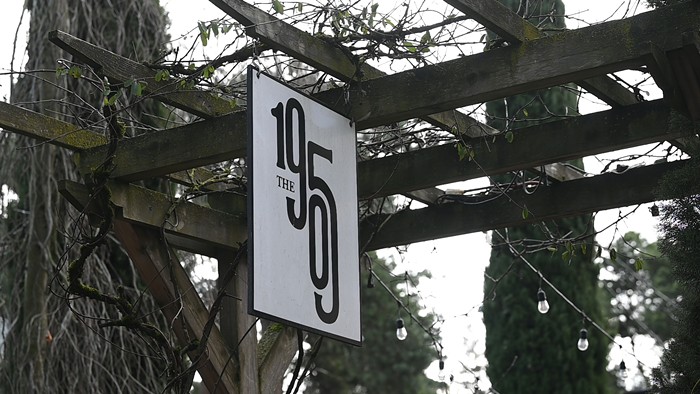WHEN I LAST SPOKE to her, Alela Diane had just released 2013's About Farewell, the weightiest endeavor of her career. A gutting, intimate breakup record, its sorrowful origins seem very far from where she is today: remarried, with a two-year-old daughter, and, by her own admission, "really happy."
It isn't fair that a songwriter should have to suffer in order to conjure profundity (lord help us that it's so good when they do), and around this time last year, Diane felt stuck for different reasons. As a new mother, she says, "I didn't have the time and space to write another solo record... I didn't have those things to say."
Meanwhile, Ryan Francesconi—an accomplished guitarist and composer best known as the principal arranger on Joanna Newsom's Have One on Me—was feeling disenchanted. His now-wife, Mirabai Peart, is Australian, and the two would meet outside their respective countries to be together, collaborate, and play shows, but these tours weren't "successful enough to do," especially for a man whose concern for his carbon footprint extends to a reluctance toward air travel. Francesconi found himself plagued by "burnout and disappointment."
When Francesconi and Diane crossed paths at a mutual friend's show, they struck up plans to collaborate on what would become Cold Moon, which makes its debut this week. Francesconi made the first move, delivering a collection of instrumental pieces—some of which he'd casually named things like "Quiet Corner" in an effort to avoid his habit of simply naming songs by date. Diane, who says she had "maybe four hours a week" of childcare with which to work, was initially intimidated by the self-contained complexity of the songs, which bear the exotic flair of a musician whose biggest influences are Balkan folk songs and an 11-CD collection of solo lute music that he says is pretty much all he's listened to since 2008. ("So maybe that's why I got in a rut," Francesconi says.)
"Initially," says Diane, "I was like, 'Whoa, how do I make this better?' It was gorgeous music on its own." Insisting that guitar playing "doesn't come easily" for her and is "just a tool" to facilitate her voice, melodies, and lyrics, Diane was hesitant to rely on the personal narratives that color much of her solo writing. "It didn't feel right to do what I usually do [over] someone else's music."
When the words finally came, they reflected the broader themes of seasons and life cycles that Diane found herself connecting to through the experience of motherhood. Celestial bodies, avian migration, and the interdependence of mood and weather figure often, as do observations on youth, death, faith, and the afterlife. "I don't have a lot of answers," she says, "just a lot of curiosities." (A Portland audience will also recognize in "Migration" a familiar mourning: "All the buildings torn down/only to be built back up again/the endless fury of the wrecking ball/but who am I to judge progress?")
On the other side of the coin, Francesconi confesses that he's learned his voice is no match for the sophistication of his playing, and so the division of labor flatters both skill sets, and both he and Diane say they mostly left the other's contributions intact. The final track, "Roy," is something of an exception, the lyrics of which are based on the death of Francesconi's friend, as told to Diane, who wove in her own experiences and elements that are essentially fiction.
The result is a mature, educated collection of universe-embracing meditations, with dramatic sweeps that occasionally recall (really good) musical theater. The autumn release of a record that was crafted over last year's hot cups of tea and changing foliage wasn't planned, but couldn't be better: "Its time has come around again," Diane says.



















